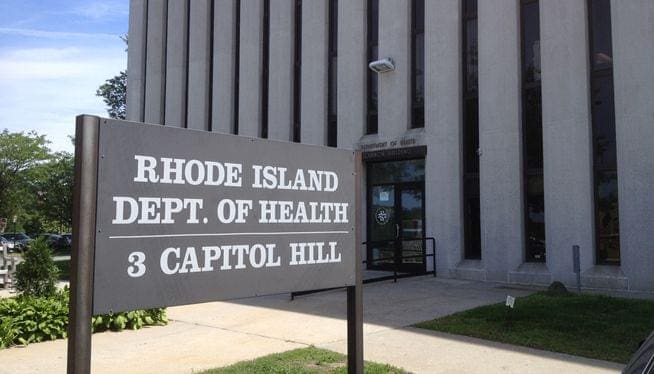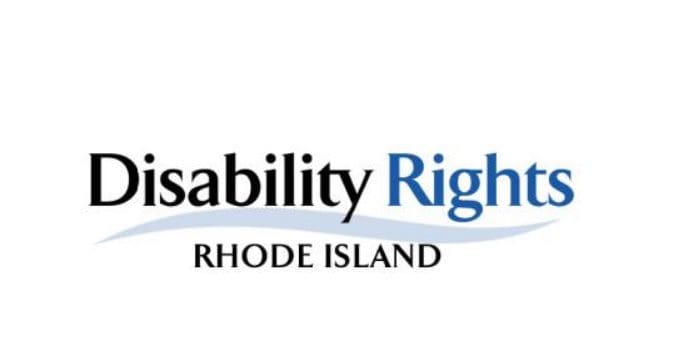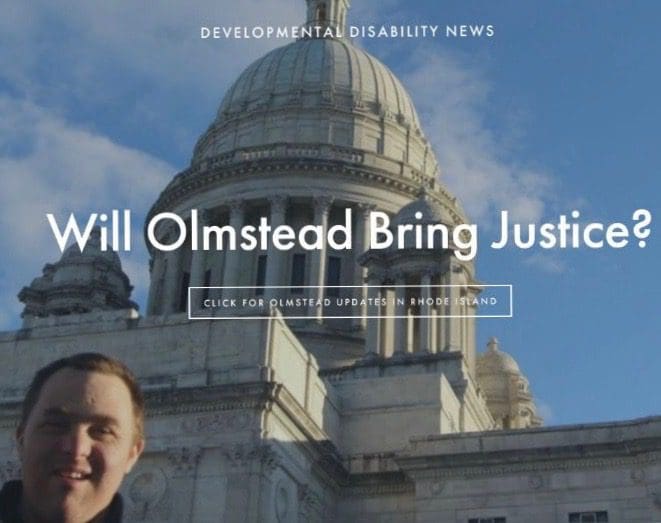Search Posts
Recent Posts
- Rhode Island Weather for April 19, 2024 – John Donnelly April 19, 2024
- Homeless in RI: Opening of Providence pallet shelter community delayed – Rhode Island Current April 19, 2024
- Outdoors in RI: Rainy days and fishing, We the People, customer service, 2A update – Jeff gross April 19, 2024
- GriefSPEAK: Voir Dire – Mari Nardolillo Dias April 19, 2024
- Cranston Councilor Germain’s resignation charges get swift response, call for investigation April 18, 2024
Categories
Subscribe!
Thanks for subscribing! Please check your email for further instructions.

Advocates Press for Justice: More lives lost to COVID19 in Rhode Island Group Homes
By Gina Macris
As the death toll from the coronavirus has ticked up in Rhode Island group homes for adults with developmental disabilities during the last two weeks, two community organizations have turned their focus to the multiple aspects of social justice – in health care equity and in issues of race.
As of June 3, a total of 10 group home residents have died from COVID-19, or 3 more than were reported about two weeks ago, on May 19, according to a spokesman for the state Department of Behavioral healthcare, Developmental Disabilities and Hospitals (BHDDH,)
Those who have died are included in a count of 138 persons with developmental disabilities in congregate care who have tested positive for the disease. The total represents an increase of 16 cases since May 19, according to figures provided by the spokesman.
Of all those who have become ill, 17 persons have been sick enough to be hospitalized at one point or another, the BHDDH spokesman said.
While the incidence of coronavirus is on the wane in Rhode Island, Disability Rights Rhode Island (DRRI) has been scrutinizing what it says are discriminatory state health care guidelines which could still be used in the future to ration care if the hospital system becomes overwhelmed.
A spokesman for the Rhode Island Department of Health said DRRI and several disability-related partner organizations have provided “important feedback” that will be considered as health officials move forward.
The developmental disabilities community has been preoccupied in the last few months with issues of equity in access to protective equipment and health care resources for vulnerable people, but ongoing concerns about civil rights should be put in a broader context in which racism permeates, said Tina Spears, executive director of the Community Provider Network of Rhode Island (CPNRI).
Spears and Michael Andrade, President of the CPNRI Board of Directors, issued a statement June 2 saying that CPNRI “stands in solidarity with the people and communities in our state and across the country who continue to bear the physical, emotional, and economic effects of racism” – including people of color who belong to the direct care workforce and families supported by CPNRI.
The statement was prompted by the death of George Floyd, a 46-year-old black man who suffered a heart attack May 25 after a Minneapolis police officer put his knee to the man’s neck for nearly nine minutes. Floyd’s death has roiled the nation, from protests in the streets to politics at the highest levels in Washington.
“We speak out against the historical and current violence against Black, brown, and other members of marginalized communities,” Spears and Andrade said. “As a network, we remain committed to upholding social justice and dismantling systems of oppression and discrimination that further violence and neglect,” the pair said, pledging to work with other like-minded groups throughout the state and the nation to “combat the root causes and outcomes of racism.”
Meanwhile, Disability Rights Rhode Island (DRRI) has recommended changes to eliminate what it says are inherently discriminatory provisions in recent guidelines issued by the state Department of Health that could be used in allocating health care resources.
DRRI acknowledges that the discussion remains theoretical – for now – as hospitals have not exceeded their capacities and emergency facilities set up to deal with an overload of coronavirus patients have remained unused.
In a May 19 letter to the Director of Health, Nicole Alexander-Scott, MD MPH, DRRI and other partner organizations have said the “Crisis Standards of Care”, issued April 25, leave the door open for discrimination against those with disabilities and older Rhode Islanders by allowing health care officials to make subjective decisions about patients’ long-range survival or quality of life after discharge.
In response to a query from Developmental Disability News, a DOH spokesman said the department has “a commitment to ensuring equitable and just access to care for all Rhode Islanders, especially more vulnerable populations.
“We worked hard to try to have that commitment reflected in the document that was developed. Having said that, this is important feedback that we are going to consider internally as we look forward and think about ways that we can better ensure health equity for everyone throughout the state,” said the spokesman.
DRRI noted that Rhode Island’s principle for ensuring equity in access to healthcare “acknowledges the need for transparent criteria for allocating resources that are free from influence by inappropriate factors such as race, gender, socioeconomic status or sexual identity.” But the letter said that “disability and age” are missing from the list of inappropriate factors. This omission “appears intentional,” since the triage assessments and criteria described in the guidelines authorize “explicit and implicit” consideration of age and disability in excluding patients from access to scarce resources.
Among other things, the guidelines allow hospitals to screen out patients having a “medical condition associated with a short life expectancy” from access to critical healthcare resources, DRRI said. “Because ‘short life-expectancy’ is not defined, hospitals and clinicians are free to interpret the term and make subjective judgments regarding its meaning,” the letter said.
Many people who are aging or have disabilities also experience medical conditions that can be perceived as shortening life expectancy and are at higher risk for being excluded from consideration based on clinicians’ subjective decisions, the letter said.
Although the guidelines take into account some conditions which are accommodated during the triage process, they fail to recognize pre-existing impairments such as limitations in mobility or speech, which would have an effect on an assessment of traumatic brain injury, DRRI said.
Nor do the guidelines mention federal laws applying to hospitals that prohibit discrimination on the basis of disability and require hospitals to make reasonable modifications to policies and practices to allow persons with disabilities to benefit from the services provided.
In a detailed analysis of the DOH guidelines, DRRI described the pertinent sections of federal anti-discrimination laws: Title II of the Americans With Disabilities Act, Section 504 of the Rehabilitation Act of 1973, and Section 1557 of the Patient Protection and Affordable Care Act (ACA.)
DRRI recommended revising the Crisis Standards of Care to comply with civil rights laws by eliminating criteria linked to survival beyond the illness which prompted the hospitalization at hand and by requiring hospitals to make accommodations for disabilities, like limitations in mobility and communications skills.
It also recommended that DOH broaden the grounds for appeal of triage decisions to include discrimination on the grounds of disability. The current grounds for appeal, permitted only for technical or procedural injustices, are overly narrow, DRRI said. To read the letter in its entirety, click here.

The letter was signed by Morna Murray, executive director of DRRI, as well as Steven Brown, executive director of the American Civil Liberties Union in Rhode Island; Amy Grattan, executive director of the Paul V. Sherlock Center on Disabilities at Rhode Island College; Kevin Nerney, executive director of the Rhode Island Developmental Disabilities Council, Advocates in Action; Joanna Scocchi, director of the ARC Rhode Island Family Advocacy Network; Debra L. Sharpe, executive director of the Brain Injury Association of Rhode Island; Spears, the CPNRI director, Marc Anthony Gallucci, executive director of the Ocean State Center for Independent Living; and Kim M. Einloth and Kiernan O’Donnell, co-chairs of the Rhode Island Employment First Task Force.
Gina Macris is a career journalist with 43 years’ experience as a reporter for the Providence Journal in Providence, RI. She retired in 2012. During her time at the newspaper, she wrote two series about her first-born son, Michael M. Smith. Both series won prizes from the New England Associated Press News Executives Association. Michael, now in his 30s, appears on the cover page, in front of the Rhode Island State House.


